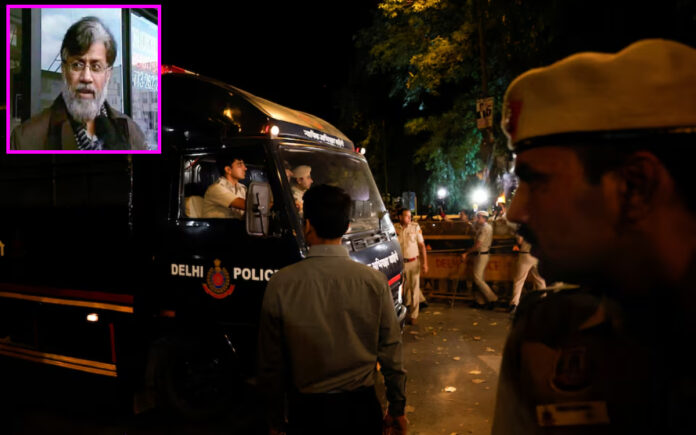New Delhi: A Pakistani-born Canadian businessman accused of aiding the 2008 Mumbai terror attacks—one of the deadliest in India’s history—was extradited from the United States and arrived in New Delhi on Thursday, marking a major milestone in the country’s long-standing quest for justice.
Tahawwur Rana, 64, a former physician who later turned to business, was handed over to Indian authorities after exhausting all legal options to prevent his transfer, including a failed petition to the U.S. Supreme Court. He now faces charges related to his alleged role in facilitating the attacks that killed 166 people over the course of three harrowing days in November 2008.
In a statement, India’s National Investigation Agency (NIA) said: “The National Investigation Agency on Thursday successfully secured the extradition … after years of sustained and concerted efforts to bring the key conspirator … to justice.”
Rana was escorted by Indian security officials back to India following a U.S. court’s approval of his extradition earlier this year.
Calling it a diplomatic victory, Indian Home Minister Amit Shah wrote on X, “It is the responsibility of the Indian government to bring back all those who have abused the land and people of India.”
तहव्वुर राणा की वापसी मोदी सरकार की ऐतिहासिक कूटनीतिक सफलता है। pic.twitter.com/UHfmY8Jss5
— Amit Shah (@AmitShah) April 9, 2025
Rana’s transfer was formally announced by U.S. President Donald Trump in February during a joint press conference with Indian Prime Minister Narendra Modi in Washington. The United States had earlier supported India’s request for extradition, formally filed in June 2020.
Tammy Bruce, spokesperson for the U.S. State Department, said, “The United States has long supported India’s efforts to ensure those responsible for these attacks are brought to justice. He (Rana) is in their possession and we’re very proud of that dynamic.”
Rana had been convicted in the United States in 2011 for providing material support to Lashkar-e-Taiba, the Pakistan-based militant group held responsible for planning and executing the Mumbai attacks. He was sentenced to 14 years in prison in 2013.
In addition to his involvement in the Mumbai case, Rana was also found guilty of conspiring to attack a Danish newspaper, though the plot was never executed.
Also Read | Pope Francis Seen in Civilian Clothing During Surprise Visit to St. Peter’s Basilica
Pakistan’s Foreign Ministry, while distancing itself from Rana, stated he had not renewed any Pakistani-origin documents in the past two decades. “As far as our record indicates, he (Rana) did not even apply for renewal for his Pakistani-origin documents for the last two decades,” said ministry spokesperson Shafqat Ali Khan during a press briefing.
Rana’s defense counsel has maintained that he was misled and “got sucked into something”, portraying him as a “good man”.
Also Read | Tensions Rise as Trump Demands Mexico Honor 1944 Water Treaty
The Mumbai attacks, carried out by 10 militants targeting high-profile locations such as the Taj Mahal Palace Hotel, the Oberoi Trident, Chabad House, and Chhatrapati Shivaji Maharaj Terminus, left a deep scar on the nation and drew international condemnation.
India continues to maintain that Pakistan’s Lashkar-e-Taiba, designated as a terrorist organization by the U.S. State Department, masterminded the attack. Pakistan has consistently denied any role in supporting extremist activities.



